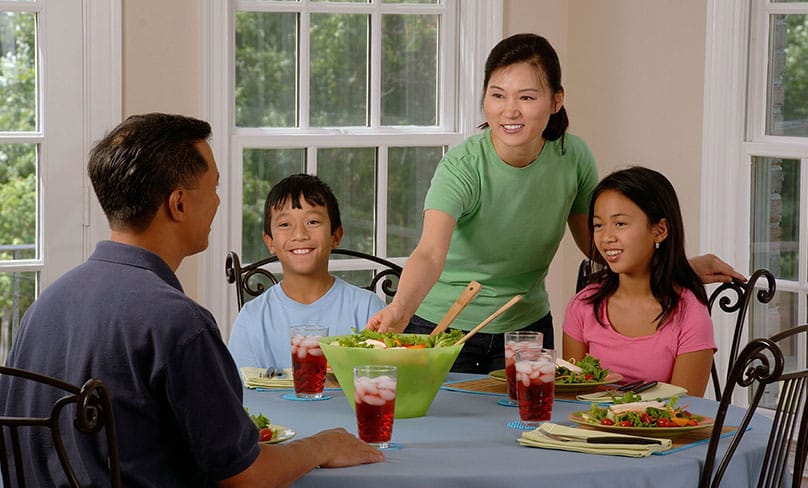
By Mary Ryan
The relationship between home and school is a powerful tool that has a significant impact on children and their learning. When we treasure and work positively on this relationship we ensure children are at the centre of a group of caring adults who have their best interests and wellbeing at heart.
But parents live under enormous pressure and feel continually time-poor. Not to mention guilty for being absent from assemblies, sports carnivals and tuck shop duty. Most of us work, often with a lengthy commute, and lack the community and family connections that once existed as support in raising children.
By the time you finish reading this I want to have convinced you of two things. Firstly, not only do you have enough time in your busy life to authentically engage in your child’s education, you probably already engage in ways that make a difference. Secondly, you probably have much more influence than you realise upon your child’s learning.
So what do you need to do to engage with your child’s school and make a difference to their learning and wellbeing?
See related article: The relationship that adds up
1. Make sure they attend school
You might think this goes without saying, but you’d be surprised how many children stay home after getting into trouble for something they did the day before or because there is something on at school that they don’t want to do. So, no excuses, insist they attend school. If they are anxious about something then reassure them and talk to them about what they can say and do about it. If they need more reassurance than this or they feel unsafe in some way speak with the school.
2. Have high, but realistic expectations for your child.
All children have potential. Expect that your child will reach theirs. Tell them you expect them to do their school work and homework. Tell them that you expect them to behave and follow the rules. Talk to them about the importance of education and school in giving them life choices.

3. Turn on devices … sometimes
Everywhere you look there are children immersed in screens but we have very little idea of what these quick moving flashing images do to a growing brain. There’s no doubt that technology is important and a wonderful advantage in our lives but it should not be used to keep children constantly entertained. Have screen time, but limit it. Don’t encourage your child to disengage from the world around them. Rather encourage them to watch, look, listen and talk. This is how parents can inspire creativity and problem solving, both important outcomes of schooling.
4. Model respectful adult relationships
School will mostly be a wonderful experience for you and your child, but sometimes there may be challenges faced by children, teachers and parents. These are important times for schools and families to engage in calm, open and honest conversations, listening actively and with empathy for the other. Sometimes teachers need to do a better job of understanding the parent perspective, parents too need to consider the perspective of the teacher. When we approach these situations with children at the centre, and we speak and act with respect, we model adult behaviour that is appropriate, conciliatory and focused on solutions.
5. Read and talk daily
The Program for International Student Achievement (PISA) by the OECD examined the family behaviours that contribute to academic success in 15-year-olds across the world. They found the parent factor in improving academic outcomes included:
- Developing a reading habit with children, this means daily reading to and with children and parents being seen by children reading.
- Talking to children about social and political issues, which really means talking about the world around them. Helping children to make sense of relationships, friendships, conflict and the general complexities of living in families and going to school.

To engage with school and improve academic outcomes the research is clear, read and talk with your children. Create daily reading habits and if you don’t already, have family dinners. At the dinner table you can influence your child positively about school, learning and the world around them. Dinner time can teach them to manage adversity in their lives and build resilience through support, family camaraderie, connection and laughter.
You may notice that I have not once mentioned going to assemblies, carnivals or helping the teacher with reading. While these are important ways to involve yourself in school and can be helpful to schools, serving at the canteen does not improve outcomes for children. So remove the guilt if you can’t be onsite.
Focus on what we know improves wellbeing, learning, behaviour, attendance and relationships. Focus on authentic engagement that includes reading and talking with your children daily, expressing a positive attitude about schools and teachers and expecting that your child will always put their best foot forward.
Be the influencer they need to get the most out of their education.
About Mary Ryan
Mary has been an educator for more than 30 years. She has taught in Catholic schools across Sydney and has experience in both school and system leadership. She is currently the Acting Executive Director of The Council of Catholic School Parents and works for Catholic Schools NSW supporting schools in the Nationally Consistent Collection of Data. Mary has an expertise and interest in family and community engagement and runs a Facebook page called Teacher at the Gate, bringing teachers to parent conversations to inform, support and build partnership.
 @teacheratthegate
@teacheratthegate
